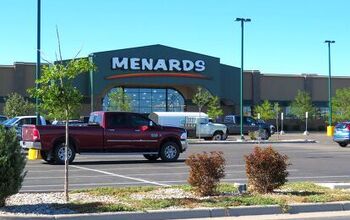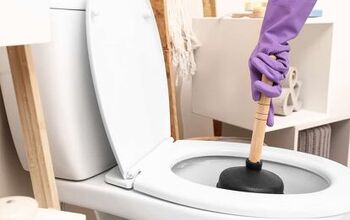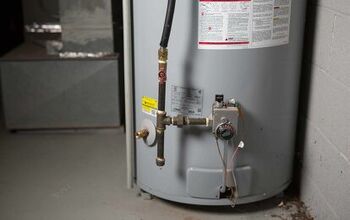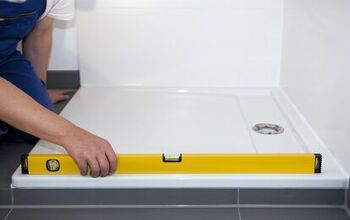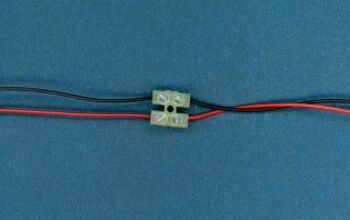Charcoal vs. Baking Soda: Which Ingredient Makes A Better Toothpaste

If you have taken the time to examine the toothcare aisle at your local pharmacy, you will likely notice that charcoal or baking soda is infused into more toothpaste than ever before. These two common ingredients are now in dozens of popular toothpaste brands, and with both stating they are great at removing stains and bacteria. But in a world with so many toothpaste options, you are probably wondering if either of these common ingredients are effective, and if so, which one is superior?
Both baking soda and charcoal use their abrasive nature to remove potential surface stains, but this can also wear away at the enamel. Some dentists warn against using charcoal toothpaste, as it can cause more harm to your enamel than help when it comes to cleaning and whitening. Baking soda is more readily available and less messy, making it a slightly safer and smarter toothpaste option.
Both baking soda and charcoal toothpaste claim to whiten teeth, but there is limited evidence that either is highly effective at removing yellow stains. Some dentists suggest that using either one of these kinds of toothpaste too frequently can cause more harm than good. Still, many advocates swear by both baking soda and charcoal toothpaste. So, before you select a new toothpaste with either of these ingredients, make sure you keep reading to understand the benefits, variables, and potential risks involved in each type of toothpaste.
Five Questions To Ask When Choosing Charcoal Or Baking Soda
How Long And Firmly Do You Brush For?
Typically, each person should brush at least twice a day for two minutes each time per day, in addition to using dental floss and mouthwash. When considering if baking soda or charcoal is right for you, first you should consider how often you brush and with what intensity.
Intense and frequent brushing sounds healthy in theory, but when using an abrasive toothpaste with charcoal or baking soda, it can potentially damage your tooth enamel, which can cause serious issues. These issues include increased cavities and tooth sensitivity.
Do You Plan To Use It Every Day?
Since baking soda and charcoal toothpaste products can be more abrasive, you should ask yourself if you are going to use these products every day, or even multiple times a day. Some brands are safe to use regularly, but homemade products with high levels of charcoal or baking soda might cause damage to your enamel.
What Are Your Expectations For The Toothpaste?
It is also important to know your expectations. Different toothpastes achieve different goals. Some improve gum health, while others increase the strength of your teeth. If your number one priority is removing surface stains, charcoal or baking soda toothpaste might be a good option. If, however, your main priority is cavity protection, then you might want to look for something else.
What Type Of Teeth Stains Do You Have?
Not all tooth stains are the same. First, there are surface stains, which are caused by things like frequent coffee use in a short time. There are also deeper stains that develop over time. This can be from smoking, or just from many years without whitening. The deeper the stain, the less effective charcoal and baking soda will be at removing them.
What Is Your Dental History?
You should always consider your specific teeth and your dental history when purchasing toothpaste. If you already have weak and sensitive enamel, you should opt for toothpaste that strengthens it. Some charcoal and baking soda toothpaste might damage your enamel, so you should be cautious.
Pros And Cons Of Using Charcoal Toothpaste
Pros Of Charcoal Toothpaste
Readily Available And Popular
Thanks to its booming popularity, you can find charcoal toothpaste almost anywhere. Popular brands including Crest have created toothpastes with charcoal in them. This is a great option for those looking to try out charcoal toothpaste, but also want to stick with a well-known brand.
Many Charcoal Toothpaste Types Have Other Cleaning Agents
Since charcoal toothpaste has become so popular, it is infused in toothpaste formulas that have other helpful agents. For example, you can find toothpaste that contains charcoal and fluoride.
Activated Charcoal Is An Often Organic Cleaning Ingredient
For those looking for natural and organic tooth whitening, or if you want to make toothpaste yourself, organic charcoal is a good option. Furthermore, activated charcoal helps remove bad odors, including bad breath.
Some Claim Activated Charcoal Is Great At Removing Surface Stains
While scientists and dentists are hesitant to say activated charcoal is effective at removing stains, this has not stopped many from praising it as a great stain remover.
Cons Of Charcoal Toothpaste
Can Damage Tooth Enamel
The biggest downside to using a charcoal-based toothpaste is that it can potentially do more harm than good. The abrasive nature of charcoal can help remove surface stains, but when used too harshly or frequently, it can remove enamel, which weakens your teeth.
Will Not Remove Deep Stains
Charcoal can help with surface stains, but it is not effective at removing deeper tooth stains. So, many seeking its whitening powers may be left disappointed.
Not Very Effective At Preventing Cavities
While some tout charcoal for its ability to whiten teeth, it is not a substitute for fluoride toothpaste when it comes to cavities. Charcoal can lift stains and remove some bacteria, but fluoride is the winner when it comes to strengthening teeth.
Potentially Messy Cleanup
If you use activated charcoal and make your toothpaste, you will find there is a potentially messy cleanup. Charcoal is black, and it can get everywhere. It can leave your sink, towels, and carpet littered with black residue after brushing if you aren’t careful.
Pros And Cons Of Using Baking Soda Toothpaste
Pros To Baking Soda Toothpaste
Baking Soda Toothpaste Has Been Popular For Decades
Baking soda has time on its side. It has been widely added to many toothpaste brands, especially natural ones, for generations. This makes it a more trusted ingredient than charcoal.
It Is A Popular And Cheap Household Item
Another great benefit of baking soda is nearly everyone has it already in the home. It is easily accessible and very cheap to buy.
Reduces Cavity-Causing Bacteria
Baking soda is known to help reduce cavity-causing bacteria. This is thanks to its pH level. Brushing with baking soda helps keep your mouth at a healthy pH.
Can Remove Surface Stains
Baking soda can remove surface stains caused by food items like tea and coffee. This is thanks to its natural stain-lifting power, which also makes it an effective laundry detergent alternative.
Effective At Removing Plaque And Preventing Gingivitis
Like other toothpaste formulas, baking soda-based toothpaste is effective at getting rid of cavity-causing plaque. It also helps prevent gingivitis - all of these benefits without chemical additives.
Cons To Baking Soda Toothpaste
Using It Too Frequently Can Damage Enamel
Just like with charcoal, baking soda is abrasive. If you use too much of it, brush too vigorously, or too often, it can weaken your enamel.
Not Nearly As Effective As Flouride For Cavity Reduction
Baking soda might be better than charcoal at removing plaque and even preventing cavities, but it isn’t as effective as fluoride. This is because baking soda does not strengthen the teeth like fluoride-based products do.
Can’t Remove Stains That Are Beneath The Surface
Toothpaste with baking soda can work to remove surface stains, but beyond that, it won’t whiten your teeth. It does not work to whiten deeper in the tooth, so you might still have yellow teeth at the end of the day.
Charcoal Or Baking Soda: What Is The Best Toothpaste For You?
The specific toothpaste you choose is ultimately a personal decision. With so many options, it is difficult to say if one charcoal toothpaste is better or worse than one specific baking soda toothpaste. Generally, it is likely a smarter choice to opt for a toothpaste with baking soda over one with charcoal, but it is always a good idea to consult your dentist for his or her recommendation.
Related Guides:

Tom Gaffey is an expert writer who currently resides in Washington D.C. Tom has a passion for real estate and home improvement writing, as well as travel and lifestyle writing. He lived the last twelve years in Hawaii where he worked closely with luxury resorts and event planners, mastering his knowledge of aesthetics and luxury products. This is where he found his passion for home improvement and a keen interest in DIY projects. Currently, Tom resides in Washington D.C, and also working on his debut fiction novel.
More by Tom Gaffey



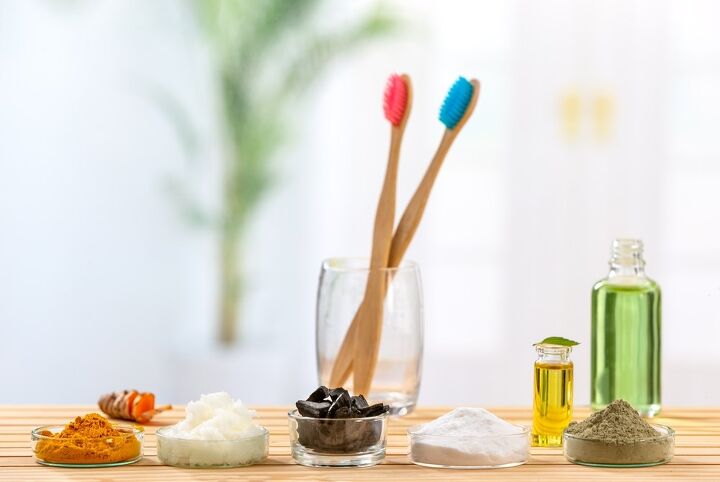







![10 Best Scroll Saws for 2022 [Ultimate Reviews & Buyer's Guide]](https://cdn-fastly.upgradedhome.com/media/2023/07/31/9070684/10-best-scroll-saws-for-2022-ultimate-reviews-buyer-s-guide.jpg?size=350x220)

